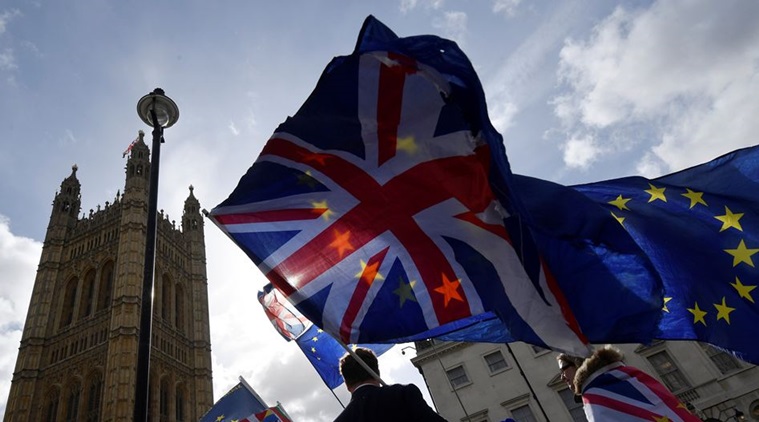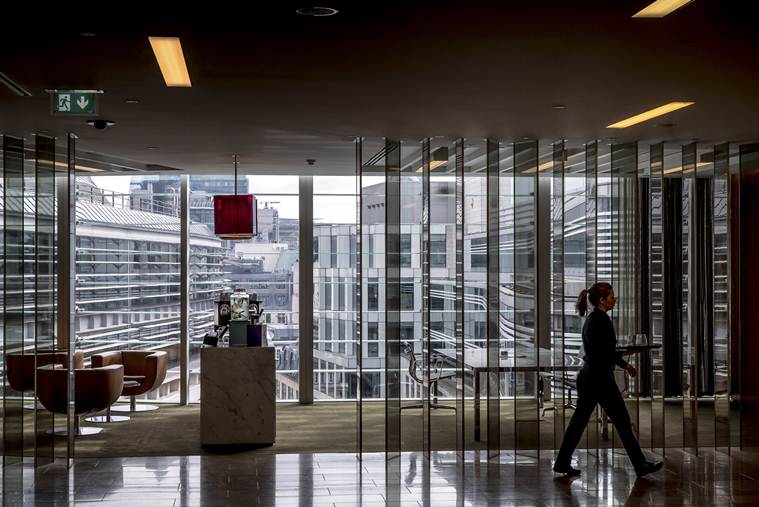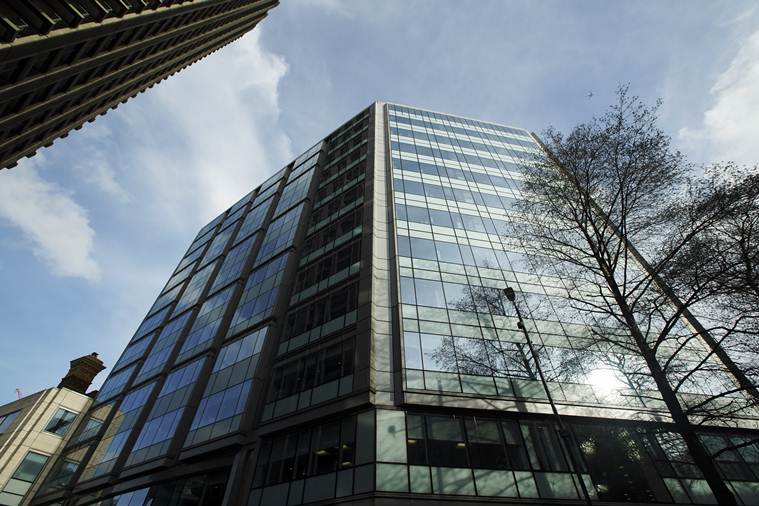
Written by David Segal
In any divorce, lawyers are the only surefire winners, and as Britain muddles through one of the biggest, messiest and most complicated breakups in economic history, the country’s top law firms are booming.
Brexit, as Britain’s separation from the European Union is known, is just one of many reasons that the highest-grossing firms are enjoying their best results in a decade. Virtually every practice area is thriving.
Regulatory lawyers, those steeped in the staggering legal minutia produced by Brexit, have lately gone from drudges to rainmakers. These attorneys strategize with clients for life after Europe’s single market, consultations that often end in bewilderment and rage.
“There’s been some swearing, some clients whose faces have drained of color, when they realize the sort of impact this all will have,” said Andrew Hood, a regulatory and trade partner at Fieldfisher, a London-based firm with more than 1,000 lawyers. “And in the last six weeks, the number of clients who have woken up worried about what a no-deal Brexit looks like has doubled or tripled.”
Law firms do not break out performance data by practice. But managing partners at the busiest firms said in interviews that their biggest clients were now spending upward of $10 million for “mitigation actions” on Brexit-related matters, such as restructuring, intellectual property rights and employment law. Even more work is expected as companies gear up to rewrite hundreds of thousands of contracts of every variety in what has been called “a massive repapering exercise.”
“You get to the end of one financial year and think, it’s the next one I’m worried about,” said David Patient, managing partner at Travers Smith, which first started working with financial clients in 1801. “We’ve been saying that for two or three years now, and we’ve been growing across the sectors at around 10 percent.”
Last year, the top 100 law firms in Britain brought in 24 billion pounds in revenue — the equivalent of $32 billion — about 8 billion pounds more in inflation-adjusted terms than in 2007, before the financial crisis, according to data collected by The Lawyer, a monthly British magazine for commercial lawyers and in-house counsel.

Over the same period, those firms have added 21,000 lawyers to their head count. The additional bodies have enhanced profits per equity partner, the bragging-rights metric in the profession. Those profits have risen each year since the Brexit referendum passed in 2016, and now average the equivalent of $1.4 million per partner at the top 10 firms.
Though law firms often prosper in times of uncertainty, few partners expected an upturn of this size. The contrast with the bleak days that followed the financial crisis in 2008 could not be starker. Then, attorneys at the most prestigious firms in the City of London, the financial district, were worried that as their biggest clients filed for bankruptcy, their firms would soon follow.
There were layoffs and pay freezes, but lawyers also kept busy restructuring companies or ushering them through insolvency. More recently, there were windfalls from investigations into allegations of fraud, like Volkswagen’s diesel emissions scandal.
Then came June 23, 2016, and the colossal billable-hour generator known as Brexit.
“Well, I left the office at 11 last night,” Susan Bright, a regional managing partner at Hogan Lovells, said one recent morning, sitting at a conference room table on the firm’s 11th floor. “And these guys were still at it.”
Charles Brasted, the firm’s resident Brexit sage, sat nearby and smiled with surprising contentment, a marathoner relishing his endurance.
“My emails probably show that I send emails at 1 or 2 in the morning,” he said. “And I start sending emails at 5 or 6 in the morning.”
The two attorneys and a handful of colleagues had just finished a Brexit webinar, an audio-only production for about 150 clients. The clients emailed questions, which filled an inbox shown on a video screen on a wall.
“If there is no deal, could WTO members refuse to recognize the U.K.’s membership to the WTO?” one question read, referring to the World Trade Organization. (The WTO is where Britain would negotiate international trade in the event of a no-deal Brexit.)
“In short, no,” Aline Doussin, head of the firm’s United Kingdom trade practice, said into a microphone. “Legally, the U.K. is a member in its own right to the WTO.”

Brexit webinars have proliferated in the last two years, just one way in which firms reach for a share of a new up-for-grabs field. The Legal 500, a British clients guide, has even begun to list top-tier firms in a Brexit category for their ability to minimize risk.
Vying for Brexit business has helped big law in Britain get over its traditionally reticent approach to self-promotion. A few weeks ago, Eversheds Sutherland, a firm with more than 2,800 lawyers around the world, installed in its lobby an immense video screen that could have been lifted from a hockey arena. It cycles silently through slickly produced slides, including one that trumpets its latest financial results: “Announcing a 10% Increase in Global Revenue in 2018.”
“Our lobby,” Matthew Allen, an Eversheds senior partner, said during a tour of the firm, “used to be kind of quiet.”
Firms now have Instagram and Twitter accounts that highlight their Brexit expertise, with links to in-house podcasts, white papers and the occasional sales pitch video.
“Brexit for a number of our clients is a problem that they need to solve,” a Linklaters partner, Matthew Keogh, says in a video on the firm’s Brexit page. “And Linklaters is a problem-solving firm.”
Freshfields, the oldest international law firm in the world, has an email address dedicated to Brexit. Fieldfisher operates a Brexit hotline and blog.
Even practice areas that are not linked to Brexit have benefited from it. The Leave vote was followed by a more than 10 percent drop in the British pound, which was a come-hither to foreign companies eyeing potential mergers and acquisitions. Suddenly, a lot of British companies looked like bargains, said Richard Cranfield of Allen & Overy, which features an online “Brexit law microsite.”
“There was a timeout in the summer of 2016,” he said in a phone interview, discussing mergers and acquisition activity. “Then autumn came around, and I think the uncertainty factor was outweighed by continuing low interest rates and the availability of financing.”
The currency’s struggles have also been good for litigators. The efficiency of London’s court system has long made it popular with foreigners filing international lawsuits, and a cheaper currency has improved the cost benefit of litigation.
“Cases that might not have been brought when sterling was strong are being brought,” said Nigel Boardman, a partner at Slaughter and May, which has offices in London, Brussels, Hong Kong and Beijing. “Legal costs become a smaller proportion of total expenses, and the reward is in a different currency.”
The winners here include newly minted attorneys. Client demand has made hiring competitive, which has driven up starting salaries. Last year, the U.S.-based Milbank Tweed Hadley & McCloy announced that it would leapfrog rivals and pay first-year associates $190,000. (That’s more than newcomers to Goldman Sachs get.) Nearly every large firm in London soon followed suit.
“Of course they did,” said Freddie Lawson of the legal recruitment firm Fox Rodney Search. “It’s an arms race.”
Unlike their clients, law firms don’t need to worry about delays at French ports. Nor are they sweating new tariff regimens, unless it’s on behalf of the executives paying for their labors.
They have, however, been busy Brexit-proofing themselves. With thousands of London-based bankers expected to relocate to Europe in coming years, law firms have been opening or expanding offices in financial capitals all over the Continent. Since the referendum, more than 2,000 British lawyers have joined the Irish Roll of Solicitors — for now, simply a matter of submitting an application — so they can continue to practice in European Union courts, among other privileges.
Thirteen percent of the entire Roll is now made up of British lawyers who applied since the 2016 vote, a spokeswoman for the Law Society of Ireland said.
How long this frenetic era will last is a matter of some hand-wringing in Britain. If enough businesses relocate, if London loses its hold as Europe’s financial center, decline is inevitable.
“What’s now in the back of everyone’s mind is that Brexit may be great for lawyers in short term,” said Jolyon Maugham, a tax lawyer and anti-Brexit campaigner. “But it’s like you’re a funeral director at the time of the plague. You’re busy in the moment, but you fear a bit for your business model.”